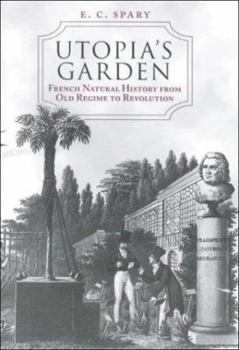Utopia's Garden: French Natural History from Old Regime to Revolution
Select Format
Select Condition 
Book Overview
The royal Parisian botanical garden, the Jardin du Roi, was a jewel in the crown of the French Old Regime, praised by both rulers and scientific practitioners. Yet unlike many such institutions, the Jardin not only survived the French Revolution but by 1800 had become the world's leading public establishment of natural history: the Mus um d'Histoire Naturelle. E. C. Spary traces the scientific, administrative, and political strategies that enabled the foundation of the Mus um, arguing that agriculture and animal breeding rank alongside classification and collections in explaining why natural history was important for French rulers. But the Mus um's success was also a consequence of its employees' Revolutionary rhetoric: by displaying the natural order, they suggested, the institution could assist in fashioning a self-educating, self-policing Republican people. Natural history was presented as an indispensable source of national prosperity and individual virtue. Spary's fascinating account opens a new chapter in the history of France, science, and the Enlightenment.
Format:Paperback
Language:English
ISBN:0226768635
ISBN13:9780226768632
Release Date:December 2000
Publisher:University of Chicago Press
Length:304 Pages
Weight:1.00 lbs.
Dimensions:0.7" x 6.0" x 9.0"
Customer Reviews
0 rating





